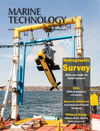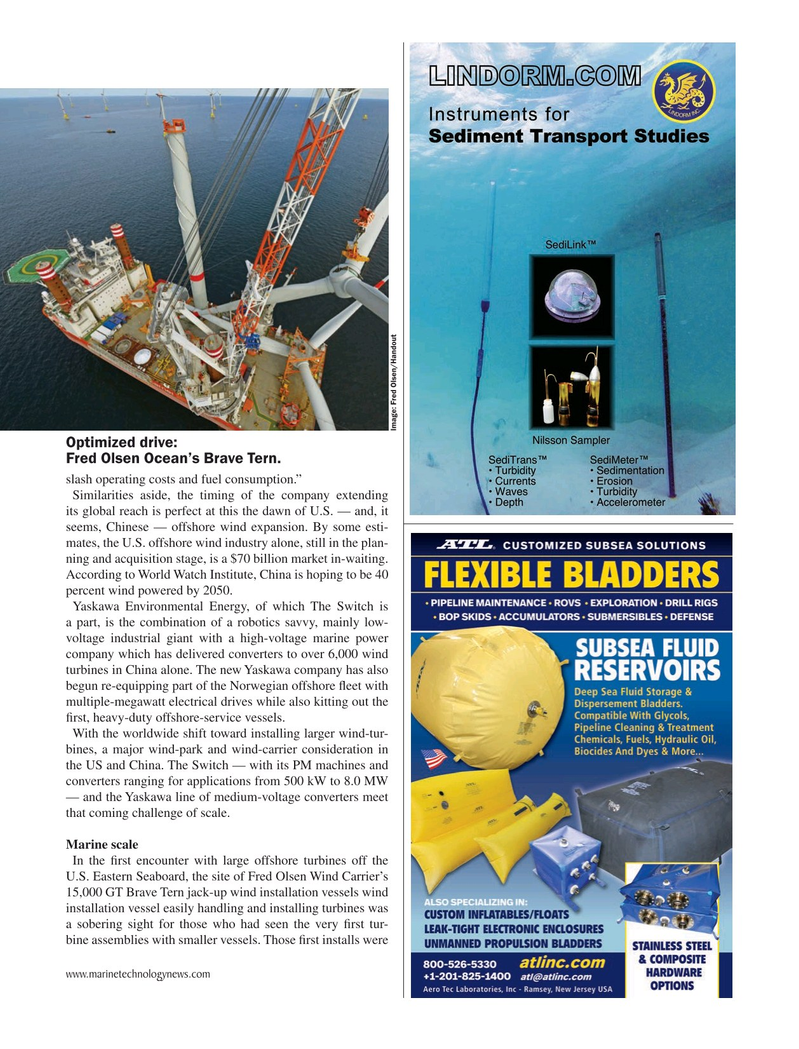
Page 41: of Marine Technology Magazine (June 2019)
Hydrographic Survey: Single & Multibeam Sonar
Read this page in Pdf, Flash or Html5 edition of June 2019 Marine Technology Magazine
Image: Fred Olsen/Handout
Optimized drive:
Fred Olsen Ocean’s Brave Tern.
slash operating costs and fuel consumption.”
Similarities aside, the timing of the company extending its global reach is perfect at this the dawn of U.S. — and, it seems, Chinese — offshore wind expansion. By some esti- mates, the U.S. offshore wind industry alone, still in the plan- ning and acquisition stage, is a $70 billion market in-waiting.
According to World Watch Institute, China is hoping to be 40 percent wind powered by 2050.
Yaskawa Environmental Energy, of which The Switch is a part, is the combination of a robotics savvy, mainly low- voltage industrial giant with a high-voltage marine power company which has delivered converters to over 6,000 wind turbines in China alone. The new Yaskawa company has also begun re-equipping part of the Norwegian offshore ? eet with multiple-megawatt electrical drives while also kitting out the ? rst, heavy-duty offshore-service vessels.
With the worldwide shift toward installing larger wind-tur- bines, a major wind-park and wind-carrier consideration in the US and China. The Switch — with its PM machines and converters ranging for applications from 500 kW to 8.0 MW — and the Yaskawa line of medium-voltage converters meet that coming challenge of scale.
Marine scale
In the ? rst encounter with large offshore turbines off the
U.S. Eastern Seaboard, the site of Fred Olsen Wind Carrier’s 15,000 GT Brave Tern jack-up wind installation vessels wind installation vessel easily handling and installing turbines was a sobering sight for those who had seen the very ? rst tur- bine assemblies with smaller vessels. Those ? rst installs were www.marinetechnologynews.com
MTR #5 (34-49).indd 41 5/28/2019 10:17:54 AM

 40
40

 42
42
